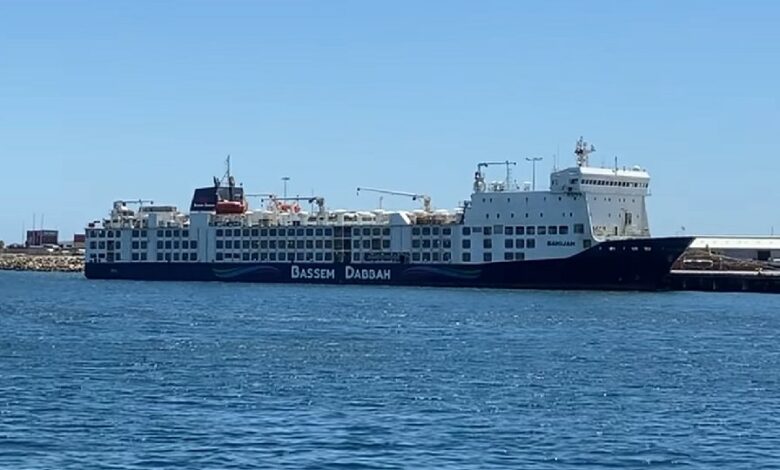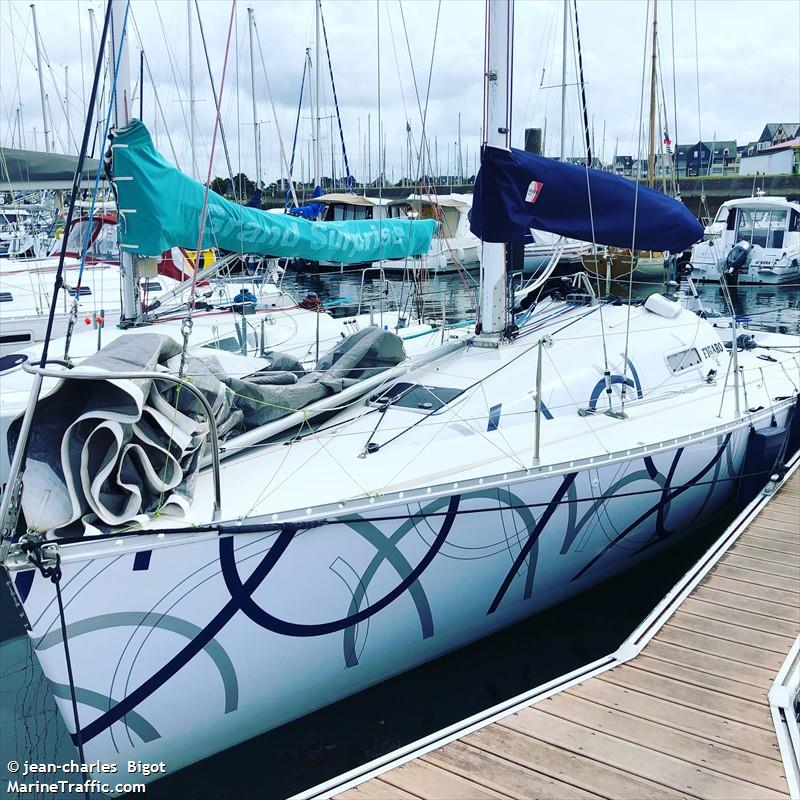Bahijah livestock carrier cleared to re-export unloaded animals to Israel via Cape of Good Hope

After a little over two weeks since 16,000 sheep and cattle were unloaded from the Bahijah livestock carrier, Australia’s Department of Agriculture has given the all-clear to load them onto the same ship and re-export them to Israel.
The vessel will not use the Red Sea route due to the danger of Houthi attacks, which was the reason it was ordered back from the route in the first place. Attacks by Houthi rebels on commercial shipping linked to Israel and the US in the Red Sea make reaching the Israeli market far more difficult.
The animals already spent nearly six weeks at sea which included the trip from Fremantle to the Red Sea, diverting from the route, the return to Australia, being stranded offshore Perth and then finally being unloaded on February 14. In all that time, the vessel berthed in port only once to restock supplies and fodder. After disembarking, the livestock were taken by truck from Fremantle Port to be held in a feedlot in quarantine amid biosecurity concerns.
Now, the Department of Agriculture has approved a notice of intention to export a consignment of that same livestock to Israel, the only condition being that the exporter does not go through the Red Sea.
The exporter did submit a plan to re-export the animals without unloading them back to the Middle East via the Cape of Good Hope, a 33-day route around Africa to evade the Houthis. A plan that was shot down by the Department.

“All consignments of livestock exported from Australia are subject to inspection by departmental veterinarians to ensure they are fit for export and meet all importing country requirements,” the Department said in a statement regarding its decision.
The veterinarian oversight sounds good in principle but reports from the Department during the livestock stay onboard the vessel said that the animals were in good health but from the departure on January 5 and unloading on February 14 a total of 81 animals died. Four cattle and 64 sheep died while onboard while seven cattle and six sheep died on land.
Lynn Simpson, a former live export veterinarian who often wrote for Splash about the problems – and often disasters – within livestock export as well as on the Bahijah situation, said in a video published by Animals Australia that the time these animals will be spending on the vessel is “insane”.
“[The proposed route], that’s 17 days. That’s small but enough for any animal to endure. They, in fact, don’t even need to do that. The idea of then returning them back to the ship and not just doing a 17-day voyage and trying to repeat that one that didn’t work but extending it to another 33 days which would take their voyage to over 70 days is absolutely ludicrous,” Simpson said.
“To even attempt that would be completely experimental. So, it’s not even long haul, it’s not extra-long haul, it’s experimental long haul. If the government does it and approves it – it’s insane,” she added.
WA Farmers livestock division spokesman Geoff Pearson took a completely different view of the situation and told local media that he welcomed the resumption of trade and that the animals “were in good condition and well-prepared for the voyage” adding that the 33-day voyage was “nothing new”.
The one positive development from the whole Bahijah calamity is the fact that earlier this week Greens Senator Mehreen Faruqi introduced a bill in the Australian Parliament to legislate the phase-out of live sheep exports by sea from May 1, 2026.

 livestock carrier, Australia’s Department of Agriculture has given the all-clear to load them onto the same ship and re-export them to Israel.
livestock carrier, Australia’s Department of Agriculture has given the all-clear to load them onto the same ship and re-export them to Israel.
Senator Mehreen Faruqi, thank you for introducing this new bill to be passed… many of us in South Africa agree with you to stop this cruelty. What can we do to support you?
If these poor souls are lucky? The carrier will overturn and they will drown, a much easier death than the voyage itself and what horror awaits them. If the humans drown….good riddance to these monsters. KARMA WILL PUNISH ALL ANIMAL ABUSERS!!!!!
Absolute abuse of animals to the worst degree. You should be ashamed of yourselves Australia.
The stocking density will be decreased (more space) and those sheep deemed unfit to load will reportedly be shot at the facility – the lucky ones. What business model has an outcome where being shot in the head is a better result than what that business has in mind for you to make them a profit?
Only 1,000 of the original +/-2,000 cattle will be loaded.
Unfortunately, the legal challenges DAFF considered in ultimately refusing the first application to re-export (when the exporter wanted to continue the voyage with the animals still on board after their round trip from Fremantle to the middle of the Indian Ocean), no longer held weight given the animals have been rested for 16 days in the quarantine facility.
The voyage they will be undertaking is 11,788 nautical miles and a minimum of 33 days. They have already travelled 7,556 nautical miles and been on board for 40 days, and it is 58 days since they were first trucked from the Peel feedlot to the port, and who-knows-how-long since they were trucked from “farm” to the feedlot where they were held prior to loading.
11,788 + 7,556 nautical miles = 19,344 nm, which equals 35,826 km, which is the equivalent of travelling from Perth to Sydney nine times.
The longest intentional voyage animals have been sent on from Australia, as far as my records go back, is 46 days. Even in the bad old days, we didn’t put animals on board for 70+ days.
The Cape of Good Hope is notorious for its wild weather and high seas – the area is littered with shipwrecks. At best, it will be a rockier voyage than is normal from Fremantle to the Red Sea. The Atlantic Ocean will typically be rougher than the Indian Ocean, and the Mediterranean is notoriously choppy.
Israel – it’s a rich country that can afford to and already does import Kosher chilled flesh from other countries (not Australia). Industry’s argument has always been that we are providing much-needed “protein” to poorer countries (yes – they even use that argument when referring to the oil-rich Gulf countries). WHY are we subjecting other animals to the amplified cruelty and suffering of transport by sea to fully conscious shechita slaughter in Israel?
Whilst both sheep and cattle will be slaughtered whilst fully conscious (as is demanded by Kosher laws for slaughter), the cattle will have their throats cut whilst fully conscious in full inversion slaughter boxes – banned here, in the US, the UK and most of Europe because of the distress they cause the cattle.
The TWO places Australia should stop sending animals to immediately in the interim period between now and the end of the live sheep trade, are Israel and Jordan (they export more live sheep than we do), given the Red Sea conflict’s added risk.
Australia should be ashamed of itself!
Totally agree – what sort of organisation that reckons it looks out for animal welfare would send these poor animals on a voyage like this – so disgusted in our current government (expect it from the farmers who are only interested in the dollar) but the end of live export was an election promise. I wonder how many of these poor animals will survive and also agree why does Israel have to have live animals.
Live exports are unacceptable. Absolutely horrific! How can the world’s largest vegan population accept this??
Please, please let’s outlaw this abhorrent, cruel practice. Shame on you Australia. It’s appalling and barbaric. I can’t bear to think how these sentient creatures suffer to appease religious beliefs. It’s obscene.
Life export of animals should be banned 🚫
It’s animal cruelty.
Absolutely disgraceful to put those animals through this journey to get slaughtered.
Shame on Australia for making the decision.
I hope more people go vegan so this disgusting industry is finally coming to an end.
I’m in shock in what horrific world we live in.
My vote will go to politicians who care about the environment, animal rights aswell as human rights.